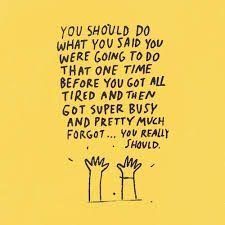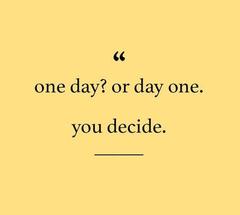There is a high chance that you might be procrastinating on something important while reading this article, (which is a bit paradoxical but bear with me).
This is good. Here you will learn simple strategies which you can use from this moment on to eliminate procrastination and get results.
Procrastination can appear because of a variety of reasons:
- Fear of Success
- Fear of Failure
- Fear of Judgment
- Fear of the Unknown
- Perfectionism and Micromanaging
- Over Planning
- The Unrealistic Expectations
- Low Self-Esteem
- Lack of Purpose and Direction
However, no matter the source, these seven strategies will help you solve that challenge.
And they will get you closer to accomplishing your goal, by creating a small shift in your mindset and approach.
Keep reading, see which one might do the trick for you, and test it out.
Here’s the list:
- Think only in the frame of 24 hours
- Visualise Your Ideal Day & Environment
- Work in Bite-size Pieces (& gradually work your way up)
- Use the 2-minute rule (“When you start a new habit, it should take less than two minutes to do.”)
- Implement The X Method
- Procrastinate On Procrastination (postpone negative behaviour for tomorrow)
- Get Acknowledgement (Positive Feedback) as fast as possible

Let’s start with the first one.
1. Think only in the frame of 24 hours
“Where focus goes, energy flows.” — Tony Robbins
In the last seven months, this approach has made me extremely productive and helped me establish a variety of new habits while eliminating the negative ones.
Also, know that to form a habit or finish a project it can take months, but you should not think about that much in advance.
You should plan, but we tend to overburden ourselves, and this demotivates us.
So if your goal is to lose weight in 2 months, think about just one day.
For the next 24 hours, your job is to do your best to eat as healthy as you can.
That is it.
No thinking about next week, or even the day after.
Once the day is finished, think about your priorities for tomorrow.
2. Visualise Your Ideal Day & Environment
“To bring anything into your life, imagine that it is already there.“ — Richard Bach
Visualization has an interesting way of triggering inner drive, which can motivate you to take a step towards your goals.
How would your ideal day & environment look like?
Answer these questions:
- When do you wake up? Moreover, what do you do in your morning ritual?
- What’s your most important goal, and what do you need to do today to get closer to it? How does your working space look like?
- Are you in the flow? How many hours per day do you want to work?
- What are the people that you spend the most time with? Family? Friends? Partner? Other ambitious thought-provoking people?
- What hobbies do you have? Reading? Dancing? Fencing (i know, weird example)?
- What do you do before going to bed? What’s your ritual?
- Finally, how do you feel?
By simply imagining how would you like your day to unravel, you trigger inner motivation, which is incredibly powerful.
3. Work Through Bite-size Activities
“Greatness is a lot of small things done well. Day after day, workout after workout, obedience after obedience, day after day.” — Ray Lewis
If you operate in 24h Frame, and you need to have a picture of your ideal day.
Next step is to take an action.
Decide what’s the most important activity for your goal, and take a small step towards it.
Nothing significant, no big leaps.
Treat this activity as if you are implementing a habit, where consistency will always beat quantity.
Start today with one bite-size activity of 15 minutes, and do your best for the day.
Tomorrow, bring it up several minutes and improve it. Do this until you reach the point of your ideal working hours.
Remember, (your) ideal work day?
And then just learn, adapt and act.
4. Use The 2-Minute Rule
“If you can do a task in two minutes, do it straight away.” — Sam Bell
Many times we just can’t seem to find a motivation to simply start an activity.
Even if we only want to do 15 minutes of the work, and work on something easy, somehow we can still skillfully stay away.
In these moments, tell yourself that you will do only 2 minutes of work. Moreover, start right away.
Before you know it, you will enter the flow and forget about the fact that you wanted to binge-watching a season of Friends.
Then, repeat, until you get better at beating procrastination.
5. Implement The X Method
Take a big wall calendar that has a whole year on one page or at least a month. And put it on a prominent wall.
For each day that you do your activity, you get to put a big X on that day.
After a few days, you’ll have a chain.
You’ll like seeing that chain, especially when you get a few weeks under your belt. Your only job then becomes not to break the chain. Don’t break the chain.
This method works, and it’s fun, especially when you keep it up for a while.
6. Procrastinate On Procrastination (postpone negative behaviour for tomorrow)
In the book 1984 (Nineteen Eighty-four) by George Orwell, there is a part where the members of the Outer Party are torturing Winston (the main protagonist), trying to break his spirit, and as they are beating him, there was one particular sentence he kept repeating to himself:
“I will confess, but not yet. I must hold out until the pain becomes unbearable. Three more kicks, two more kicks, and then I will tell them what they want.”
This got me thinking.
Usually, when we want to establish a good habit, we tend to procrastinate. We postpone the positive behaviour.
However, what if we use that for the negative behaviour?
So, I decided to do an experiment.
Just one habit, and to focus on it in the span of 24hours.
If I feel the urge to break it, I will postpone it. For tomorrow.
The habit was eating healthy. I went to buy groceries, and I had a sweet tooth.
When I saw the ice cream, I told myself (once I stopped drooling):
“You can have it tomorrow, but today get some veggies.”
Moreover, I did. It was hard, but the idea that tomorrow the ice cream is waiting for me, was enough to let it go today.
When I got up in the morning, I followed the rule for the establishing the habit.
I focused on the healthy eating part, in just one day, and that was it.
When I thought about the ice cream, I told myself the same thing: “You can have it tomorrow.”
After I had repeated this for 3–4 days, it became easier.
My body was detoxicating from sugar, and I did not feel need/want it anymore.
From then on, this is what I have been doing.
Procrastinating on a bad behaviour.
It works like a charm.
7. Get Acknowledgement (Positive Feedback)
“Real life is not always going to be perfect or go our way, but the recurring acknowledgement of what is working in our lives can help us not only to survive but surmount our difficulties.“ — Sarah Ban Breathnach
What you are looking for is to get recognised for your results as fast as possible, because that’s crucial for sustaining your motivation.
Think of acknowledgement as of a feedback, which will tell you whether or not you are on the right path.
Let me give you my example.
My article “A 5-Step Plan That Landed Me A Promotion And 40% Raise…” got me 636 views in total.
I was going from a friend to friend asking if this piece was good, or my writing was just bad.
I spent more than a week writing it. I felt so unmotivated that it took me over two weeks to get back to writing.
And then every article since that one gave me more positive feedback.
This helped me maintain the motivation until I wrote my article:
“13 Things You Should Give Up If You Want To Be Successful”.
It went viral and had over 35.000.000 views. This is the biggest recognition I have had in my life so far, and it gave me the biggest drive I have had in my life.
Now my goal is just to keep it up.
However, one thing is clear — it’s natural that in the beginning, you will not see the results right away.
However, that can be deceiving because if you don’t notice it, it doesn’t mean that others don’t see it.
And that’s why it’s important to tell people around you, to your family, friends, colleagues, partners that you are embarking on a particular goal.
This will not only be a good accountability technique that whenever you meet some of them, they can keep you in check, but they will also notice the difference if you have been diligent.
If you do not get a feedback, ask for it, so you can see whether or not you are on the right path.
Final Thoughts
Even if you choose one goal to try it out, you will get results.
However, you can also combine them, and you will have the compound effect because they will stack up.
Have in mind just one important rule:
If necessary, sacrifice the quality, and the quantity, for the sake of consistency.
It’s better to do even 5 minutes a day, rather than skipping three days.
Small actions, small steps, big results.
Then evaluate and adapt them/it based on the progress and circumstances.
Originally posted on Medium










